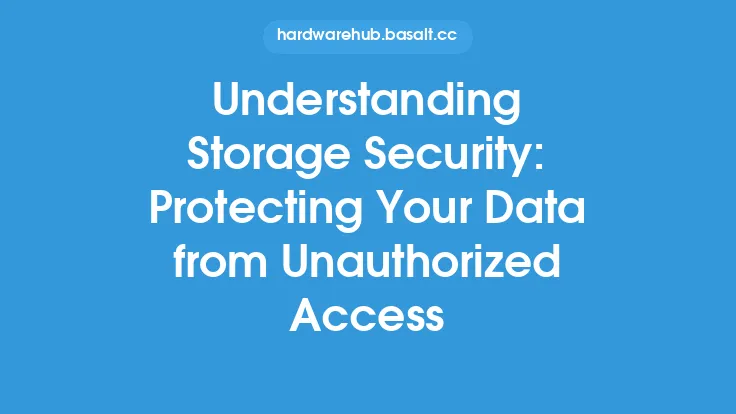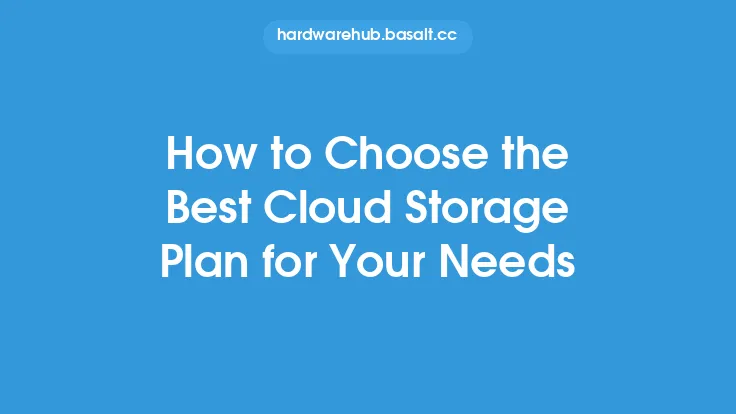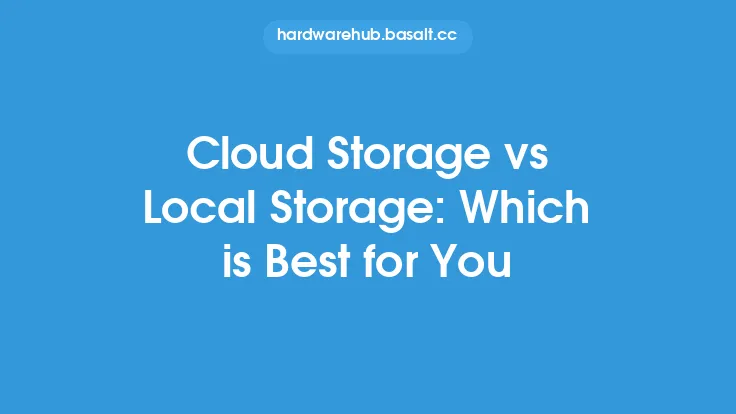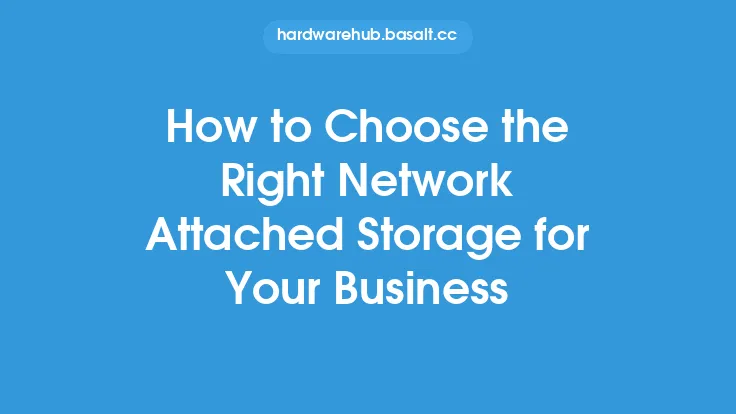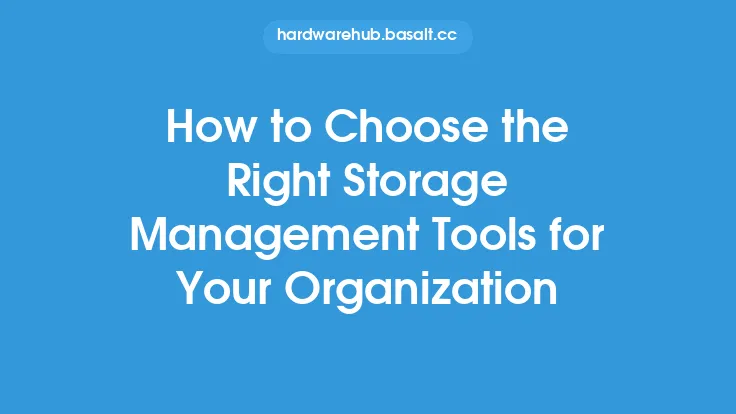As the world becomes increasingly digital, the need for secure and reliable data storage solutions has never been more pressing. Cloud storage has emerged as a popular option for individuals and businesses alike, offering a convenient and scalable way to store and access data from anywhere. However, with the rise of cloud storage comes the risk of data breaches and cyber attacks, making cloud storage security a top priority. In this article, we will delve into the various cloud storage security measures that can be taken to protect your data and ensure the integrity of your cloud storage system.
Introduction to Cloud Storage Security
Cloud storage security refers to the practices, technologies, and controls used to protect data stored in cloud storage systems from unauthorized access, use, disclosure, disruption, modification, or destruction. Cloud storage security is a shared responsibility between the cloud storage provider and the user, with each party playing a critical role in ensuring the security and integrity of the data. Cloud storage providers are responsible for securing the underlying infrastructure, including the physical data centers, networks, and servers, while users are responsible for securing their data and applications.
Data Encryption
Data encryption is a critical cloud storage security measure that involves converting plaintext data into unreadable ciphertext to prevent unauthorized access. There are two main types of encryption: server-side encryption and client-side encryption. Server-side encryption occurs when the cloud storage provider encrypts the data on their servers, while client-side encryption occurs when the data is encrypted on the user's device before being transmitted to the cloud. Encryption protocols such as AES (Advanced Encryption Standard) and SSL/TLS (Secure Sockets Layer/Transport Layer Security) are commonly used to secure data in transit and at rest.
Access Control and Authentication
Access control and authentication are essential cloud storage security measures that ensure only authorized users can access and manipulate data. Access control involves setting permissions and access rights to control who can access, modify, or delete data, while authentication involves verifying the identity of users and devices. Cloud storage providers use various authentication protocols, such as username and password, two-factor authentication, and multi-factor authentication, to ensure that only authorized users can access the data. Additionally, access control lists (ACLs) and role-based access control (RBAC) can be used to grant or deny access to specific resources and data.
Data Backup and Recovery
Data backup and recovery are critical cloud storage security measures that ensure business continuity in the event of data loss or corruption. Cloud storage providers typically offer automated backup and recovery options, such as snapshotting and versioning, to ensure that data can be restored in case of a disaster or data loss. Users can also implement their own backup and recovery strategies, such as backing up data to an external hard drive or using a third-party backup service.
Network Security
Network security is a critical cloud storage security measure that involves protecting the network infrastructure and connections from unauthorized access and malicious activity. Cloud storage providers use various network security measures, such as firewalls, intrusion detection and prevention systems, and virtual private networks (VPNs), to secure the network and prevent unauthorized access. Users can also implement their own network security measures, such as using a VPN or encrypting data in transit, to add an extra layer of security.
Compliance and Governance
Compliance and governance are essential cloud storage security measures that ensure cloud storage systems meet regulatory and industry standards. Cloud storage providers must comply with various regulations, such as GDPR (General Data Protection Regulation), HIPAA (Health Insurance Portability and Accountability Act), and PCI-DSS (Payment Card Industry Data Security Standard), to ensure the security and integrity of sensitive data. Users must also ensure that their cloud storage systems comply with relevant regulations and industry standards, and implement governance policies and procedures to ensure the security and integrity of their data.
Cloud Storage Security Best Practices
To ensure the security and integrity of cloud storage systems, users should follow best practices, such as:
- Using strong passwords and multi-factor authentication
- Encrypting data in transit and at rest
- Implementing access control and authentication measures
- Regularly backing up and recovering data
- Monitoring and auditing cloud storage activity
- Implementing governance policies and procedures
- Using secure protocols for data transfer, such as SFTP (Secure File Transfer Protocol) and HTTPS (Hypertext Transfer Protocol Secure)
Conclusion
Cloud storage security is a critical aspect of cloud storage solutions, and users must take proactive measures to protect their data from unauthorized access and malicious activity. By implementing cloud storage security measures, such as data encryption, access control and authentication, data backup and recovery, network security, compliance and governance, and following best practices, users can ensure the security and integrity of their cloud storage systems. As the cloud storage landscape continues to evolve, it is essential to stay informed about the latest cloud storage security threats and measures to ensure the protection of sensitive data.
